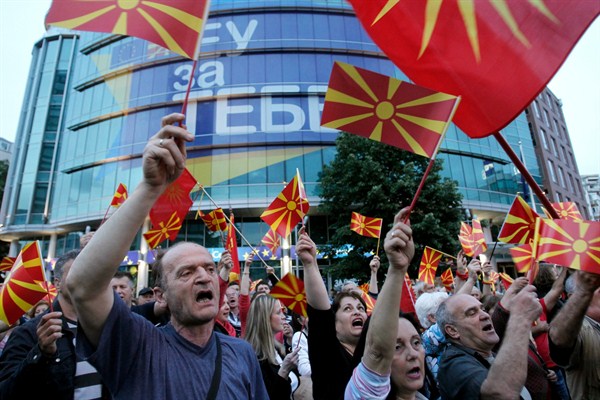Editor’s Note: This article is part of an ongoing WPR series about NATO members’ contributions to and relationships with the alliance.
The Balkan nation of Macedonia has been waiting for years to join NATO, yet the hurdles to this goal seem only to multiply. In addition to objections and conditions from some NATO members, including Greece, Macedonia is also facing the possibility that its ongoing internal political crisis will prevent the process from moving ahead. In an email interview, Stojan Slaveski, a professor and security expert at the European University of the Republic of Macedonia in Skopje, explains how these setbacks have affected Macedonia’s defense preparedness, as well as how public opinion of NATO has evolved.
WPR: What is the state of Macedonia’s accession bid, and how do leaders think it would benefit from joining NATO?

